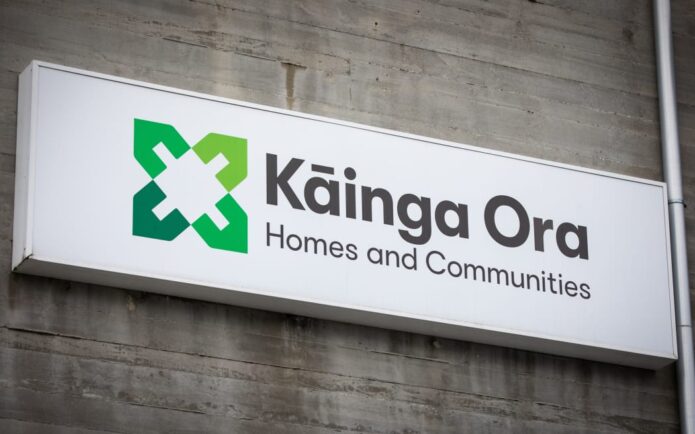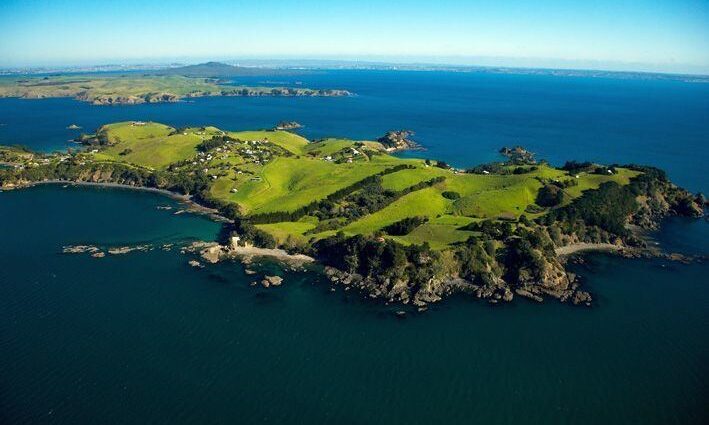PHOTO: Rakino Island. FILE
A guide for those dreaming of self-sufficiency and living remotely.
If you’re inspired by the growing numbers of people living in off grid homes around the country, now could be the time to do some in-depth research on whether it could be something for you. And it’s an area where the technology for generating and storing energy is improving all the time so it pays to keep on top of the latest advances.
What does off-grid mean? It means living without relying on a utility company for power and producing your own energy, often through solar energy.
Jon Iliffe, director of DesignHaus, which does eHaus homes, has helped three clients build off-grid homes. There are two approaches to adopting the lifestyle.
“The first is more the low budget approach where people are choosing a simple lifestyle and are making compromises to save money. This often involves wood burners and gas for cooking and for hot water,” he says.
The second are those who are building their dream home and their location means it’ll cost an extra $100,000 and more to connect to the grid.
“It’s entirely possible to have a fully electric house and even an EV and be off-grid,” adds Jon. The investment is significant, but the clients we have built for have been very determined to make it happen with no compromise, he says.
In some cases, the off-grid house may already be connected to the electricity grid, and it might be an idea to keep it connected, not to draw power from but to contribute to it. You’ll collect credits for any extra energy you produce.
Jon likes this idea. “My favourite position is to be grid-tied with solar PV because you get the best of both worlds and the cost of power is only $80 a month,” he says.
When choosing to go off-grid it makes sense to minimise the amount of energy the home will need to run every day. In the old days this often meant a compromised lifestyle and making do with less than optimal living conditions but in the last 10 years, thanks to Passive House technology this is no longer the case, says Jon.
A Passive House will typically require 90% less active heating or cooling energy and an overall reduction in energy consumption of around 60%, says the DesignHaus director. The Passive House standard is the highest energy efficiency standard in the world and has been building code in countries like Switzerland for years, he adds.
The tech’s getting better
The good news to those starting out is it’s gotten easier and less expensive to be living off-grid with features like solar panels becoming more affordable, and strides being made in battery sizes for greater energy storage.
Rakino Island in the Hauraki Gulf is completely off-grid and resident, Kevin Haster, speaks about the lifestyle regularly to people thinking of making the move.
His message to anyone considering living off-grid is: “Don’t rush into rash decisions, do your homework relative to your financial budget, and identify what your priorities are.”
Prices are coming down in certain key areas such as solar panels, he notes.
“The price of solar panels today is 10% of what I paid for them 20 years ago,” he says. If he were building today he’d “carpet the roof with solar panels,” he adds.
Meanwhile, the fastest evolving aspect of off-grid living is in battery developments, says Kevin.
“Stay on top of those developments but don’t fall for the best marketing campaign,” he advises. “Only buy technology that has stood the test of time.”
The Rakino resident can talk at length about septic systems. He prefers a non-electric syphon system, as electrical pumps can be a drain on household power.
You don’t need to sacrifice things like good water pressure, he adds. He has a 240v system at his Rakino home with a mains pressure pump.
“A high-pressure shower is one of my luxuries of life,” he says.
Why one family is upsizing from one off-grid home to another
Cantabrian, Bryan, and his family are privately selling their first off-grid home in Waimakariri, and plan to repeat the off-grid experience.
The four-bedroom, two-bathroom Ohoka home they’re selling is just 20 minutes from Christchurch’s CBD and was built in 2020. It has its own solar energy, a well and septic tank, plus a large veggie garden, two orchards, and a sheltered entertainment fire pit and pizza oven.
It would have cost $55,000 to become tied to the grid from this Waimakariri home and it was the fact it was off-grid that really made the block appealing to them, says Bryan.
“It’s like an addiction really, and we’re going to be doing it on a bigger scale at the next property,” adds the entrepreneur.
At their current home, which Bryan designed and built himself, there’s an extra shed for solar panels on the roof and some down the wall at 45-degree angles to make the most of the summer and winter sun. The solar energy runs through a good quality solar charger system and inverter and then into a large-size storage battery, he says.
The Kiwi previously lived in a house in Germany built to Passive standards and he recommends double glazing or triple glazing in your off-grid home depending on where you live in the country.
The next off-grid home he’s planning will have triple glazing, a coal range, and a big cellar to store food and other items. He’s also going to have more water storage next time so he can run radiators throughout the house to heat it.
“It’s the older style of doing things, it’s about doing everything passively, for instance having a concrete floor to hold the heat in,” he explains
Why one home owner took the off grid route and would do it again
Aucklander, Ben, and his family have enjoyed their Waitākere off-grid home for the past five years, auctioning it recently after strong interest through Harcourts agent, Celia Challis.
“I think it appealed to a lot of buyers, we had 46 groups come through. They’d come in and look out at the view and their shoulders would drop,” says Celia.
With the power feed stopping halfway up the driveway, the Harcourts agent made sure there was a costing done for buyers interested in getting power to the house.
Ben says you don’t need to be an engineer to live off-grid. “You could probably build the system yourself now with basic knowledge,” he says.
The Waitākere homeowner explains why he and his wife decided to live off-grid with their three boys. “The whole point of it all was to give my children the best possible upbringing, so they knew where meat comes from, they learned about power conservation, conserving water supply, and to eat food straight out of the garden. We wanted them to have that holistic experience,” he says.
The Waitākere property has three 25,000 litre water tanks for the house and the owners have taken water out of the property’s pond for stock and crops when needed.
READ MORE VIA TRADEME PROPERTY
MOST POPULAR
 Former olympian starts a new career with Barfoot & Thompson
Former olympian starts a new career with Barfoot & Thompson ‘Unacceptable’: top real estate agents axed
‘Unacceptable’: top real estate agents axed Melissa Caddick’s parents and husband face being HOMELESS | AUSTRALIA
Melissa Caddick’s parents and husband face being HOMELESS | AUSTRALIA OCR decision: How high will the Reserve Bank take the official cash rate?
OCR decision: How high will the Reserve Bank take the official cash rate? Homeowner is left fuming
Homeowner is left fuming Inside Putin’s ‘secret’ daughter’s gaudy, $10K-per-month home in Russia
Inside Putin’s ‘secret’ daughter’s gaudy, $10K-per-month home in Russia Reserve Bank lifts OCR
Reserve Bank lifts OCR Abandoned land for sale
Abandoned land for sale AUSTRALIA: Could banning foreigners buying property end sky-high prices?
AUSTRALIA: Could banning foreigners buying property end sky-high prices? Wellington’s red-hot house prices are finally cooling … why, then, is no-one buying?
Wellington’s red-hot house prices are finally cooling … why, then, is no-one buying?

















